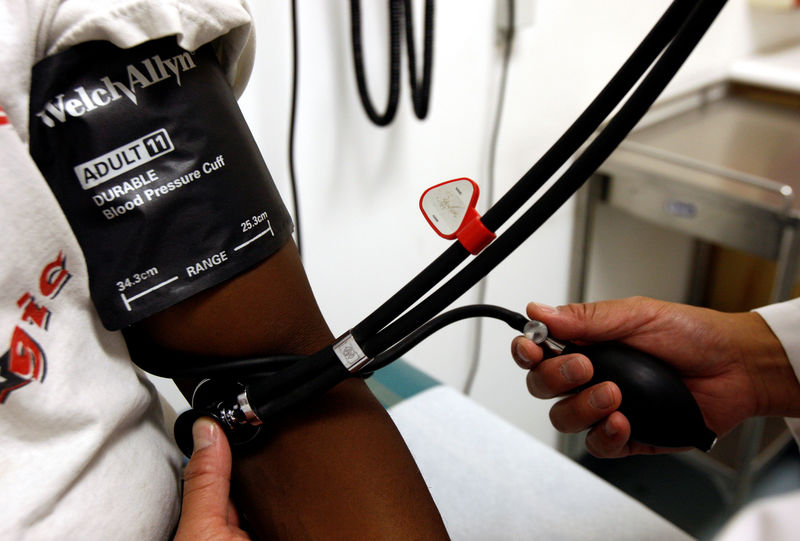By Richard Cowan and David Morgan
WASHINGTON (Reuters) - President Donald Trump pressed Republican lawmakers on Tuesday to support a new attempt to overhaul the U.S. healthcare system, but struggled to attract party moderates who feared a backlash from voters who could lose insurance benefits.
Most Republicans in the conservative House Freedom Caucus faction have gotten on board with the new bill, which Democrats are vowing to oppose. A lobbying battle to influence Republican moderates was under way involving both conservative and liberal political groups.
"It's close. We're getting there," said Representative Tom MacArthur of New Jersey, a moderate Republican who brokered the deal with hardline conservatives that revived the healthcare legislation.
The stakes are high for Trump, who vowed during his 2016 campaign to repeal and replace the Affordable Care Act, commonly known as Obamacare. Over the past several weeks, he has repeatedly set deadlines for the House of Representatives to pass a healthcare bill. So far, the Republican-led House has fallen short of securing the necessary votes.
Representative Mark Meadows of North Carolina, who heads the House Freedom Caucus that helped block passage of the first healthcare bill, said Republicans were still "a handful of votes away."
The current bill would allow states to opt out of Obamacare provisions that force insurers to charge sick and healthy people the same rates. That is seen as a concession to the Freedom Caucus, which has endorsed the new measure.
Trump insisted in an interview with CBS News that aired on Sunday that the protections for those with pre-existing conditions would remain.
"I think it's time now" for a healthcare vote, the Republican president said at the White House on Tuesday.
If a plan passes the House, it is expected to face a tough fight in the Senate, where Republicans have a narrower majority.
OPPOSITION
Republicans contend that former Democratic President Barack Obama's signature 2010 healthcare law, which allowed some 20 million Americans to gain medical insurance, is too intrusive and expensive.
The White House sent Vice President Mike Pence to the Capitol on Tuesday to meet with Republican holdouts on the party's latest effort to pass a healthcare overhaul.
Republicans remain divided over key aspects of the healthcare bill, with some lawmakers worrying about a potential spike in the number of people without coverage, or sharp increases in insurance premiums.
Representative Daniel Webster, whose central Florida district is home to many retirees, said Pence told him he would try to work out problems caused by proposed Medicaid spending caps that would limit nursing-home beds.
"I just think it’s going to cost us a lot in Florida,” Webster said.
Another Florida Republican, Thomas Rooney, said confusion over the potential loss of coverage for pre-existing conditions had his constituents scared that "they're going to die because of a vote that we might be taking."
Conservative groups such as Club for Growth and Heritage Action started to increase pressure on moderate Republicans who were resisting the bill, such as Representative Billy Long of Missouri.
"Billy is using liberal talking points to distort the truth," Club for Growth President David McIntosh said, adding that Long "may want to keep Obamacare."
Left-leaning groups including the Center for American Progress were pushing their members to call lawmakers to urge them to oppose the healthcare bill, including via 7,000 medicine bottles delivered to congressional districts. Emily Tisch Sussman, a CAP organizer, said those efforts had generated "tens of thousands" of phone calls.

Patient advocacy groups, including the American Heart Association and American Diabetes Association, also oppose the reworked bill, while the American Medical Association and others have expressed concerns.